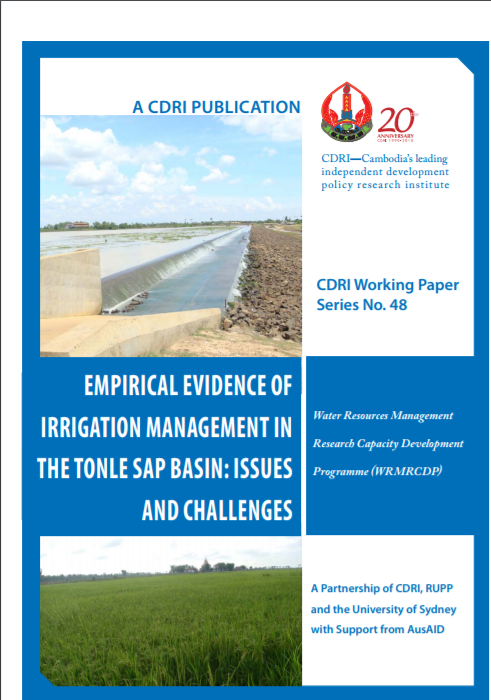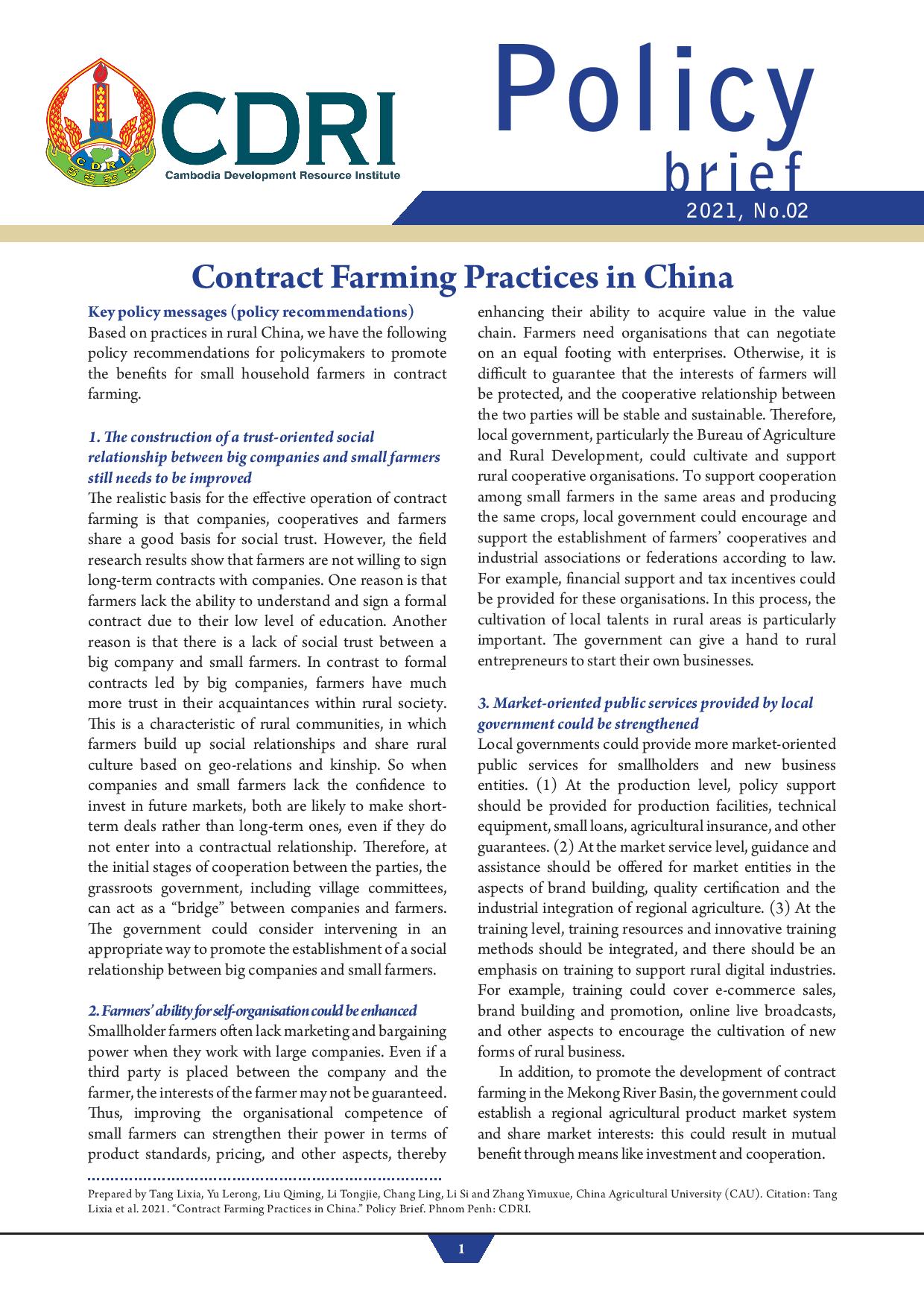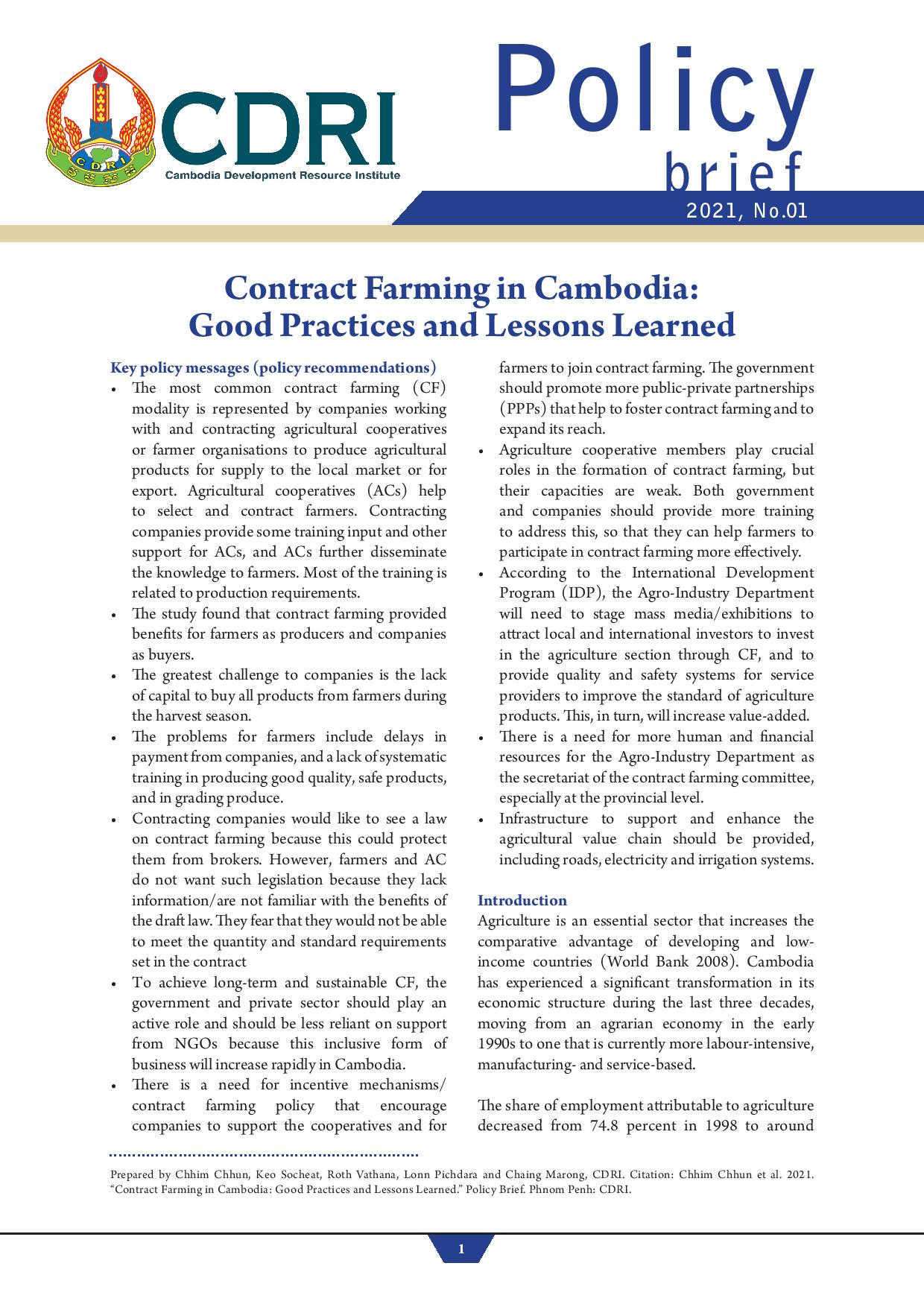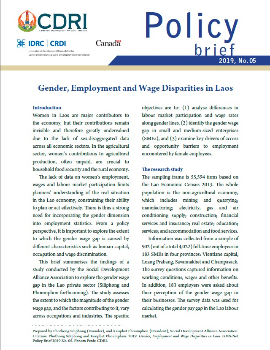
Empirical Evidence of Irrigation Management in the Tonle Sap Basin: Issues and Challenges
Keyword: Irrigation management, water governance, Tonle Sap Basin, participatory development, agricultural sustainability
Abstract/Summary
This working paper, published by the Cambodia Development Resource Institute (CDRI), presents an in-depth empirical assessment of irrigation management in Cambodia’s Tonle Sap Basin. It explores the critical role of irrigation in enhancing agricultural productivity in a country where 80 percent of the population relies on farming, primarily rice cultivation. Despite significant government investment and the introduction of Participatory Irrigation Management and Development (PIMD), many irrigation schemes face persistent challenges, including poor infrastructure, water scarcity, weak institutional coordination, and limited farmer participation. The study draws on field data from 17 irrigation schemes across six provinces, highlighting issues such as ineffective water allocation, fee collection difficulties, and the emergence of private irrigation initiatives. It also identifies governance, economic, and physical dimensions as key areas for further research. The paper underscores the need for integrated water resource management, improved legal frameworks, and strengthened institutional capacity to ensure sustainable irrigation practices. By combining social assessment methodologies with policy analysis, the study provides valuable insights for future research, planning, and policy-making aimed at improving water governance and rural livelihoods in Cambodia.



